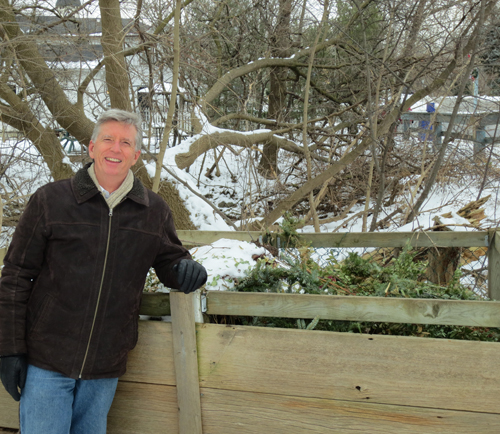Winter Composting
In the coming weeks, we Canadians will be consuming a good deal of food. To my dismay, we will be throwing out a good deal as well. It’s true that some food waste is inedible, but we throw out an awful lot that is either edible at the time of disposal or was edible not long before.
Worse than the wasting of food is the method of disposal: the garbage bin. In many areas across Canada, if it hasn’t been implemented already, authorities are reducing the frequency of garbage pick-up. There is a need to realize the importance of the composter and, perhaps even more, the importance of the winter composter. That’s right, you can compost in the winter.
The Benefit
Numbers vary by area, but I think it’s safe to say that 40-60% of the material you put out as garbage is biodegradable material that can be composted. For those of us with reduced pick-up frequency or a reduced number of weekly bags, this 40-60% savings is huge.
Winter Composting – The Challenges
If you’re a regular summer composter, you understand the basics of organic decomposition. If not, well, once again, I’m here to give you the down low: give these two blogs a read before going any further.
The main challenge with winter composting is the slowdown of decomposition. The summer brings heat and active bacteria. The cool winter temperatures cause a slow down for bacteria just as they do for other organisms (bears and hummingbirds for example). The bacteria, however, are still living and working to break down the material: within that cold, frozen exterior is a warm epicentre of decomposition.
Once spring comes around and temperatures begin to rise, decomposition will resume throughout the pile.
Some Tips for Winter Composting
1. Remove excess precipitation: by building a roof or tarping your compost pile, you remove excess moisture that can increase ice build up.
2. Reduce wind exposure: block out chilling winds to reduce frost from building on the outside.
3. Don’t stop adding material and keep the material small. The new material will help to further insulate the interior layers and the smaller particles will help to keep heat more uniform, reducing hot and cold spots.
It’s best to start a composter in the spring: if the bacteria aren’t already in place, it won’t show up in the dead of winter. For now, do your best to keep your food scraps to a minimum or, if you’re not using the city provided green bin, start now. The holiday season sees a great deal of garbage beyond that which can decompose. The less material you add to landfill, the bigger positive impact you have on the environment.




